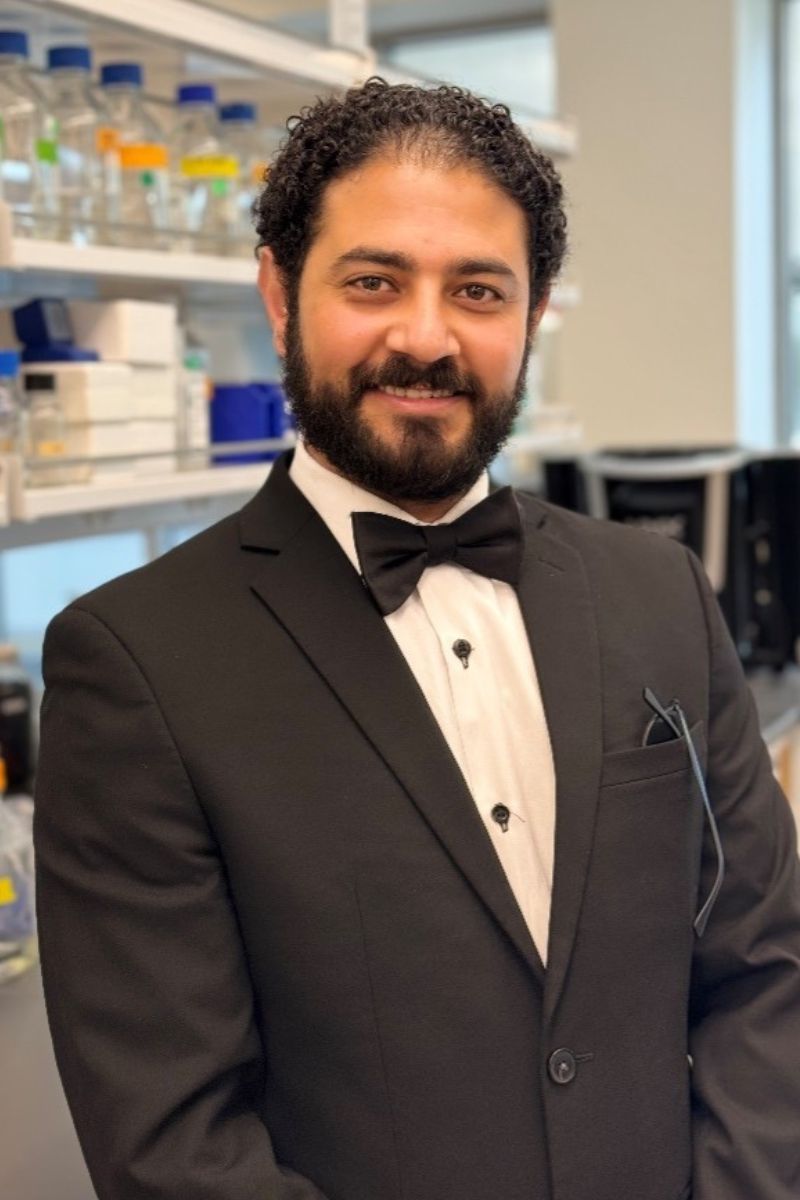Healing Soldiers Through Innovation

A University of Texas at Arlington scientist hopes to revolutionize the recovery process for soldiers and others with traumatic muscle injuries.
Kamal Awad, assistant professor of research in the College of Nursing and Health Innovation and researcher in UTA’s Bone-Muscle Research Center, is using 3D bioprinting technology to create personalized engineered muscle grafts that can be implanted into damaged muscle tissue.
“These grafts are designed to be conductive, allowing for improved integration with the body's natural electrical signals, and cellularized, meaning they contain living cells that can help regenerate muscle,” he said.
In support of this work, Dr. Awad received a $200,000 grant from the Trauma Research and Combat Casualty Care Collaborative, a University of Texas System initiative focused on the critical need for improved trauma care in the U.S.
Awad’s grafts aim to combat volumetric muscle loss, a condition often experienced by those who suffer from traumatic injuries with significant muscle loss. Many patients are unable to restore lost muscle function, leading to amputation and permanent disability.
“Through our innovative muscle grafts, we hope to fully regenerate the injured muscles and restore their functionality again,” Awad said.
He attributes his ability to conduct his innovative work to the top-tier facilities available at UTA. Awad earned his master’s and doctoral degrees from the University and was a Fulbright scholar. He selected UTA among four recommended institutions due to its on-campus resources, including the Nanofabrication Center and the Bone-Muscle Research Center.
“With this unique combination of state-of-the-art machines on one campus, this is a dream place to conduct this research,” he said. He also cites the support and mentorship of Marco Brotto, director of the Bone-Muscle Research Center, as key to his development as a scientist.
Two other UTA faculty members were awarded grants for their own trauma-related projects. Barbara Schneider, professor of graduate nursing and endowed chair in gerontological nursing, received funding for her project “A pre-hospital hyperbaric oxygen regimen to stimulate skeletal muscle regeneration after blunt trauma.” Muthu Wijesundara, professor of research in the Depatment of Bioengineering and principal research scientist at the UTA Research Institute, was awarded a grant for a project entitled “Adaptive spine board overlay for pressure injury prevention and vibration reduction during long-range aeromedical evacuations.”